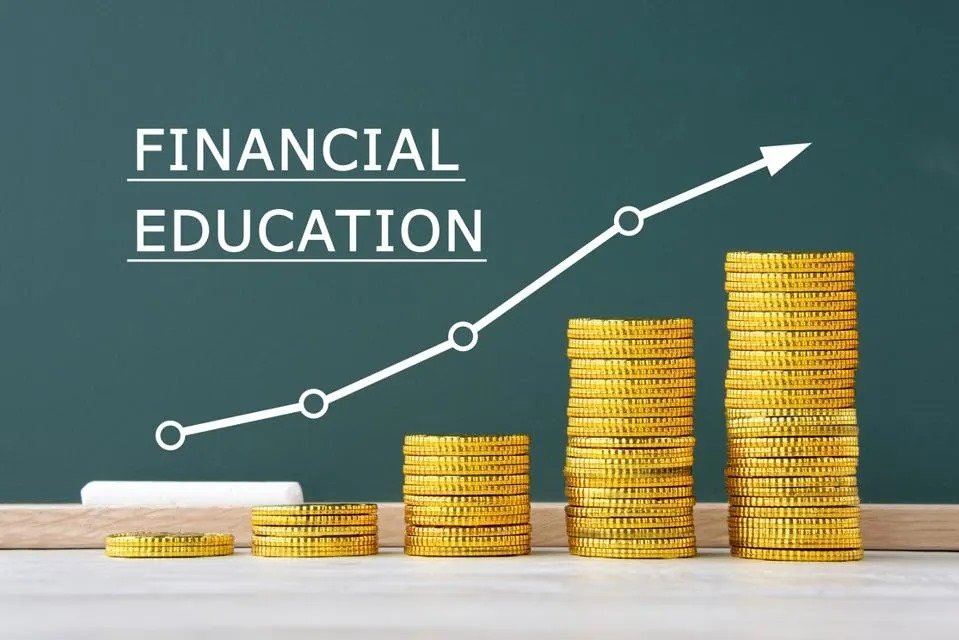What is a Financial Educator?
In present times, financial literacy has become highly important! Understanding and managing credit, making informed spending and saving decisions, and knowing when to get professional advice are vital aspects for good financial management. However, many people still lack the knowledge to manage their money effectively which leads to financial difficulties and missed opportunities.
This is where the expertise of a financial educator becomes invaluable! In this blog, we will explore the importance of financial education, the key aspects of personal financial literacy, and how financial educators can help close wealth gaps.
The Role of a Financial Educator in Society
Simply put, a financial educator teaches others how to manage their personal finances! They provide education on a myriad of topics, including budgeting, saving, investing and debt management among others.
Financial educators work in schools, community organizations, or as independent consultants, with the aim to help people of all ages and backgrounds develop an understanding of money management. This way, they empower people to make informed decisions about their finances.
A financial educator’s role is not limited to teaching technical financial knowledge. They are also mentors who help individuals understand how their financial choices affect their future well-being. These educators improve personal financial literacy, and enable individuals to tackle their financial struggles and build a more secure future for themselves and their families.
What Does Financial Education Teach You?
So, what does financial education actually cover? To the novice it may mean understanding how to save money only. In reality, a financial literacy program addresses many important areas that can help improve a person’s overall financial health.
- Budgeting- Financial education teaches individuals how to create and maintain a budget, thereby helping them understand their income, expenses, and how to allocate their funds efficiently.
- Saving and investing- Individuals learn how to save and invest wisely. They can understand the benefits of compound interest, diversification, and long-term wealth-building strategies.
- Debt management- Financial education helps people understand all about credit, including credit scores, loans, and how to manage and pay off debts responsibly.
- Goal Setting- It also teaches how to set realistic short-term and long-term financial goals, such as saving for a home, retirement, or education.
These important skills help individuals to make informed choices and avoid common financial pitfalls. Financial educators teach people the fundamentals of personal finance, and equip them with the tools to achieve financial independence.
Key Aspects of Financial Literacy
Financial literacy primarily means understanding key concepts that impact your financial future. Here are some of the vital aspects of financial literacy.
- Understanding credit- Knowing how credit works, how credit scores are calculated, and the implications of borrowing- aspects that can make a significant difference in your financial life.
- Managing debt- Learning how to manage debt like credit card debt, mortgages or student loans to maintain financial health.
- Investing- The ability to understand different investment vehicles, like stocks, bonds, and real estate, and knowing how to assess risk and reward for wealth building.
- Consumer awareness- Being aware of your rights as a consumer and understanding financial products and services so you can make informed decisions.
Why is Financial Education Important?
Financial education provides individuals with the requisite knowledge to manage their finances effectively, avoid costly mistakes, and secure their financial future. Without this knowledge, many people may struggle with budgeting, saving, investing, and managing debt which may cause financial instability and insecurity.
Financial education also has a broader societal impact as it can help communities to thrive! Individuals who understand their finances are less likely to fall into debt traps or face foreclosure. They may be more inclined to save for retirement, invest in their future, and thereby contribute positively to the economy.
How Financial Education Helps Close Wealth Gaps
One of the most prominent ways that financial education helps society is by addressing wealth disparities. In many communities, particularly in low-income families, financial education is not widely available. This lack of knowledge can result in poor financial decision-making, which then causes wealth gaps.
Financial literacy programs in the underserved communities lay the groundwork for wealth-building, and hence help level the playing field for everyone, irrespective of their background.
Hence, the access to financial literacy classes and financial literacy programs by financial educators can help individuals from all walks of life learn the skills needed to manage their money wisely.
This can include teaching people how to:
- Build an emergency fund
- Plan for retirement
- Understand how taxes impact their finances
- Navigate the housing market and make informed decisions about buying a home
With these skills, individuals build wealth over time, reduce their debt, and eventually create a more stable financial future.
Essential Skills for Teaching Financial Education
Besides an understanding of finance, teaching financial education also requires the ability to communicate and teach effectively.
Some requisite skills for teaching financial education include:
- Strong communication skills to explain complex financial concepts in simple terms so that the audience can understand and apply what they learn.
- Empathy for financial struggles- Ability to listen to students’ concerns and adapt teaching style to meet individual needs.
- Patience to teach and provide ongoing support to students as they learn and grow.
- Problem-solving skills to help students address financial challenges and find practical solutions to real-world problems.
Conclusion
In summation, financial educators play a vital role in improving personal financial literacy across society. They provide the tools, knowledge, and skills that individuals need to manage their money effectively, close wealth gaps, and ultimately achieve financial freedom.
A career in financial education is not only rewarding but also offers continuous growth. Since finance is a constantly evolving field, financial educators must stay updated with the latest trends, research, and tools to ensure they provide the most accurate and relevant information to their students.
Through ongoing professional development, workshops, and engaging in lifelong learning, financial educators can boost their skills and better equip individuals to manage their finances.






